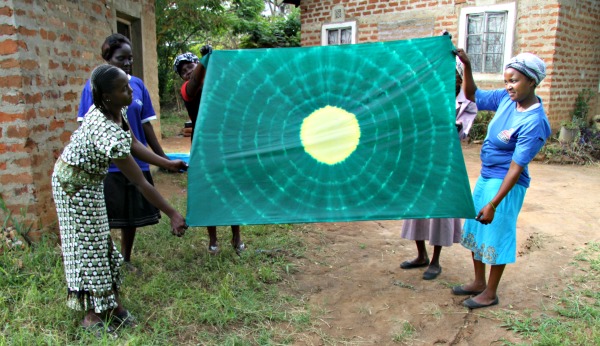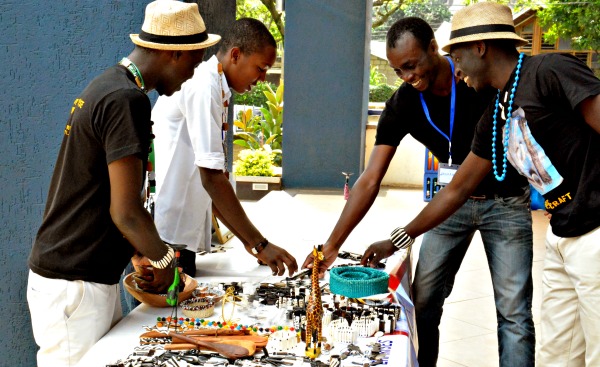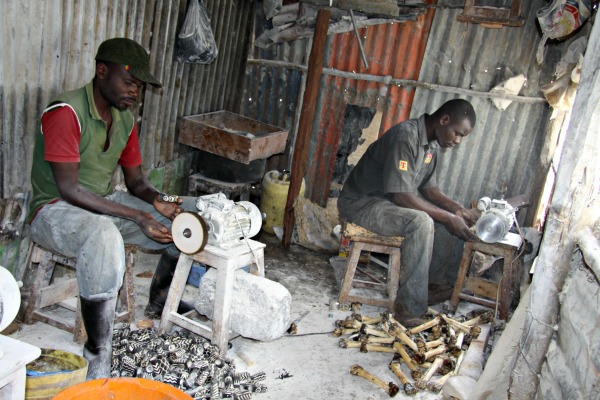
The Jesuit HAKIMANI Centre (JHC) in Nairobi, Kenya is thinking positive.
With one in six young Kenyans unemployed, a positive attitude change is needed and work alternatives found and developed into businesses. In fact, according to the Kenya Standard “The future of Kenya’s competitiveness in the global economy remains bleak as the country struggles to contain the heaviest youth unemployment burden in East Africa.”
Positive thinking and discovering alternatives
Its ambitious vision is “To contribute effectively to social and economic transformation of young people both in and out of school, promote the establishment of an environment that will enhance the dignity of smallholder farmers, and support the development of credible governance systems and processes in the region.”
JHC considers it a priority that young people should be trained to direct their energies into activities that are productive. Learning to think positively is a step towards the realisation that alternatives exist.
Although the alternatives may not appear to be as attractive as formal employment, JHC believes if they are properly approached they can offer productive futures and have developed the ‘Think Positive Alternatives Exist’ (TPAE) training programme.

Your talents. Your innovations. Your economy.
TPAE has three components. First, that every human being has talents to be discovered and nurtured. In a poorly functioning economy, turning to one’s talents is an important step towards self-discovery. TPAE’s philosophy seeks to change attitudes from over dependence on formal employment to thinking of job creation and self-employment alternatives.
Talents should be used to develop ideas. Living in a competitive world makes it difficult for those with poor resources to develop their ‘comparative advantage’. But given the motivation, capacity and resources, young entrepreneurs can develop extremely innovative ideas.
It won’t stop there. Regional exhibitions will promote successful and viable innovative ideas, exposing them to sponsors, investors and partners. The implementation of successful innovations can spread entrepreneurial ideas into wider Kenyan society.
Lastly, in the course of developing their business ideas TPAE throws out a challenge to youth—to be empowered and demand just and fair systems of governance. Members of civil society organisations will gain the knowledge and skills to lobby for increased allocation and access by youth of regional funding for business development.
The economic future of the Kenyan nation depends greatly on their creativity, energy and perseverance.

Carolyne’s Cakes
Carolyne is the leader of Sena Women’s Group, Kenya. The group produces health food cakes using sweet potato, cassava flour and pumpkins. “TPAE has helped me to train community members on how to write business plans, make cakes and form community groups to facilitate empowerment.”
She says, “I helped form two groups—Amani Horticultural Farmers Association which extracts oil from peanuts and Tentangon Youth Group which deals with security management in the community. TPAE has helped me to be known in Kenya.”
Money for old bones
Bone Craft Ventures of Kibra, Nairobi was set up by Boniface Onyango following his TPAE training. Boniface was born and brought up in Kibera, Nairobi and was earning only €1.50 per day after completing high school. The project buys waste cow bones collected from the Kibera slums in Nairobi and developed into crafts. It has received government backing through the UWEZO Fund.
Youth at Kibera now look at bones through a business lens—as a source of income with Bone Craft Ventures.
Irish Jesuit Missions, JHC and TPAE in partnership
The Irish Jesuit Missions supports the Jesuit Hakimani Centre and ‘Think Positive Alternative Exist’ project. The HAKIMENI name has a distinct identity combining religious, public and African values; HAKI means ‘justice’, IMANI means ‘faith’ and AMANI ‘peace’.
JHC has four main programmes; economic justice; governance; peace building and media; research and publications. The TPAE project will enjoy the support of a rich network of state and non-state actors that JHC has previously interacted with. The strong partnership with selected policy makers, legislators, key personnel at the executive level of governance and academia, depicts the capacity of JHC to advocate for policy change based on research and evidence. Find out more on Facebook.
{youtube}_IZMwe3s35o{/youtube}
Author: Irish Jesuit Missions communications, 23rd June 2017
The Jesuit HAKIMANI Centre contributes towards the attainment of the United Nations Sustainable Development Goals 2030, specifically SDGs 1, 2, 6, 8, 9, 12, 14, 17

